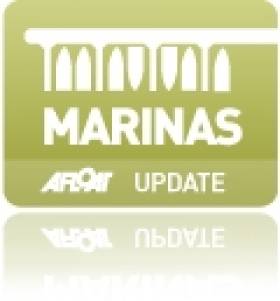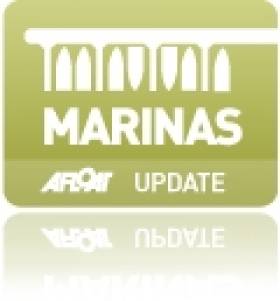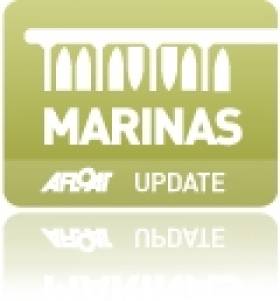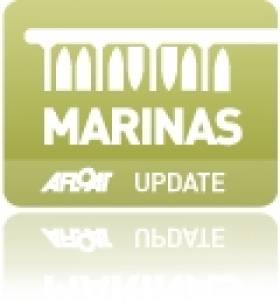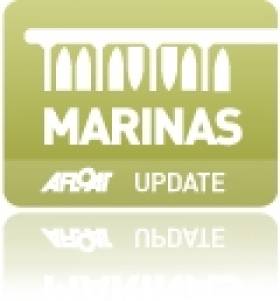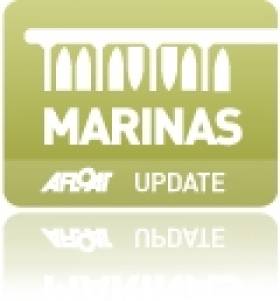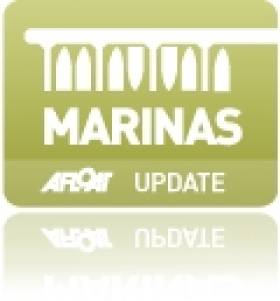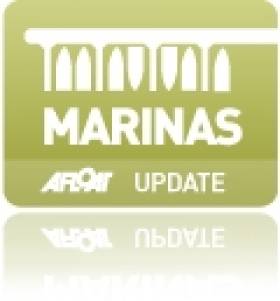Displaying items by tag: Irish Marinas
Cahersiveen Marina. Yacht & Boat Berths & Storage in Kerry
Cahersiveen Marina is situated two miles up Valentia River from Valentia Harbour, the marina is well protected in all wind directions and is convenient for sailing to Valentia Island and Dingle Bay as well as for visiting some of the spectacular uninhabited islands in the surrounding area. Boasting a host of sheltered sandy beaches, the region is renowned for salt and fresh water fishing as well as being good for scuba diving. Within easy walking distance of the marina lies the historic town of Cahersiveen, incorporating an array of convivial pubs and restaurants.
Cahersiveen Marina
The Pier, Cahersiveen, Co. Kerry, Ireland
Tel 00353 66 9472777 Fax: 00353 66 9472993
Email: [email protected]
VHF: Ch M
Access: H24
Fenit Harbour Marina. Yacht & Boat Berths & Storage in Kerry
Fenit Harbour Marina is tucked away in Tralee Bay, not far south of Shannon Estuary. It offers a superb cruising ground being within a days sail of Dingle and Kilrush, the marina also provides a convenient base from which to visit inland attractions such as the tourist towns of Tralee and Killarney. This 120 berth marina accommodates boats up to 15m LOA and benefits from deep water at all states of the tide. The small village of Fenit incorporates a grocery store as well as pubs and restaurants while among the local activities are horse riding, swimming from the nearby sandy beaches.
Dingle Marina. Yacht & Boat Berths & Storage in Kerry
Dingle is Ireland's most westerly marina, lying at the heart of the sheltered Dingle Harbour and is easily reached both day and night via a well buoyed approach channel. The surrounding area is an interesting and unfrequented cruising ground, with several islands, bays and beaches for the yachtsman to explore. The marina lies in the heart of the old market town, renowned for its hospitality and traditional Irish pub music. Besides enjoying the excellent seafood restaurants and 52 pubs, other recreational pastimes include horse riding, golf, climbing and diving.
Dingle Marina
Strand Street, Dingle, Co. Kerry
Tel: 00353 66 9151629
Email: [email protected]
VHF: Ch M
Access: H24
Portaferry Marina lies on the east shore of the Narrows, the gateway to Strangford Lough on the north east coast of Ireland. A marine nature reserve of outstanding natural beauty, the Lough offers plenty of recreational activities. The marina, which caters for draughts of up to 2.5m, is fairly small, accommodating around 30 yachts. The office is situated about 200m from the marina itself, where you will find ablution facilities along with a launderette. Portaferry incorporates several pubs and restaurants as well as a few convenience stores, while one of it's prime attractions is the Exploris Aquarium. Places of historic interest in the vicinity include Castleward, and 18th century mansion in Strangford, and Mount Stewart House and Garden in Newtownards.
Portaferry Marina
11 The Strand, Portaferry, BT22 1PF
Tel: 07703 209780 Email: [email protected]
Ardglass Marina (Phennick Cove). Yacht & Boat Berths & Storage in Northern Ireland
Ardglass Marina (also known as Phennick cove marina) is situated just south of Strangford, Ardglass has the capacity to accomodate up to 33 yachts as well as space for small craft. Despite being relatively small in size, the marina boasts an extensive array of facilities, either on site or close at hand. Most of the necessary shops, including grocery stores, a post office, chemist and off-licence, are all within a five-minute walk from the marina. Among the local onshore activities are golf, mountain climbing in Newcastle, which is 18 miles south, aswell as scenic walks at Ardglass and Delamont Park.
Carlingford Marina
Carlingford Lough is an eight mile sheltered haven between the Cooley Mountains to the south and the Mourne Mountains to the north. The marina is situated on the southern shore, about four miles from Haulbowline Lighthouse, and can be easily reached via a deep water shipping channel. Amon the most attractive destinations in the Irish Sea, Carlingford is only 60 miles from the Isle of Man and within a day's sail from Strangford Lough and Ardglass. Full facilities in the marina include a first class bar and restaurant offering superb views across the water
Carlingford Marina, Co. Louth
Tel: 042 937 3073 Fax: 042 937 3075
Email: [email protected]
www.carlingfordmarina.ie
Bangor Marina. Yacht & Boat Berths & Storage in Northern Ireland
Situated on the south shore of Belfast Lough, Bangor is located close to the Irish Sea cruising routes. The Marina is right at the town's centre, within walking distance of shops, restaurants, hotels and bars. The Tourist information centre is across the road from the marina reception and there are numerous visitors' attractions in the Bourough. The Royal Ulster Yacht Club and the Ballyholme Yacht Club are both nearby and welcome visitors.
Quay Marinas Limited
Bangor Marina, Bangor, Co. Down, BT20 5ED
Tel: 028 91453297 Fax: 028 9145 3450
Email: [email protected]
www.quaymarinas.com
Carrickfergus Marina. Yacht & Boat Berths & Storage in Northern Ireland
Located on the north shore of Belfast Lough, Carrickfergus Marina and harbour incorporates two sheltered area suitable for leisure craft. The harbour is dominated by a magnificent 12th Century Norman Castle which, recently renovated includes a film theatre, banqueting room and outdoor models depicting the castle's chequered history. The marina is located 250 metres west of the harbour and has become increasingly popular since opeing in 1985. A range of shops and restaurants along the waterfront caters for most yachtsmen's needs.
Ballycastle is a traditional seaside town situated on Northern Ireland's North Antrim Coast. The 74-Berthed, sheltered marina provides a perfect base from which to explore the well known local attractions such as the Giant's Causeway world heritage site, the spectacular Nine Glens of Antrim, and Rathlin, the only inhabited island in Northern Ireland. The more northern coastal marina in Ireland, Ballycastle is accessible at all states of the tide, although yachts are required to contact the marina on VHF Ch 80 before entering the harbour. Along the seafront are a selection of restaurants, bars and shops, while the town centre is only about a five minute walk away.
Ballycastle Marina,
Bayview Road, Ballycastle, Northern Ireland
Tel: 028 2076 8525/07803 505084
Fax: 028 20766215
Email: [email protected]
VHF: Ch80
Access H24
Seatons Marina. Yacht & Boat Berths & Storage in Northern Ireland
Seatons marina is a privately owned business on the north coast of Ireland, which was estabished by Eric Seaton in 1962. It lies on the east bank of the River Bann, approximately two miles downstream from Coleraine and three miles from the sea. Long term pontoon berths are available for yachts up to 11.5m with a maximum draft of 2.4m; fore and aft moorings are available for larger vessels. Lift out and mast stepping facilities are provided by a 14 tonne trailer hoist.
Seatons Marina
Drumslade Rd., Coleraine, Londonderry, BT52 1SE
Tel: 028 7083 2086
Email: [email protected]
www.seatonsmarina.co.uk



























